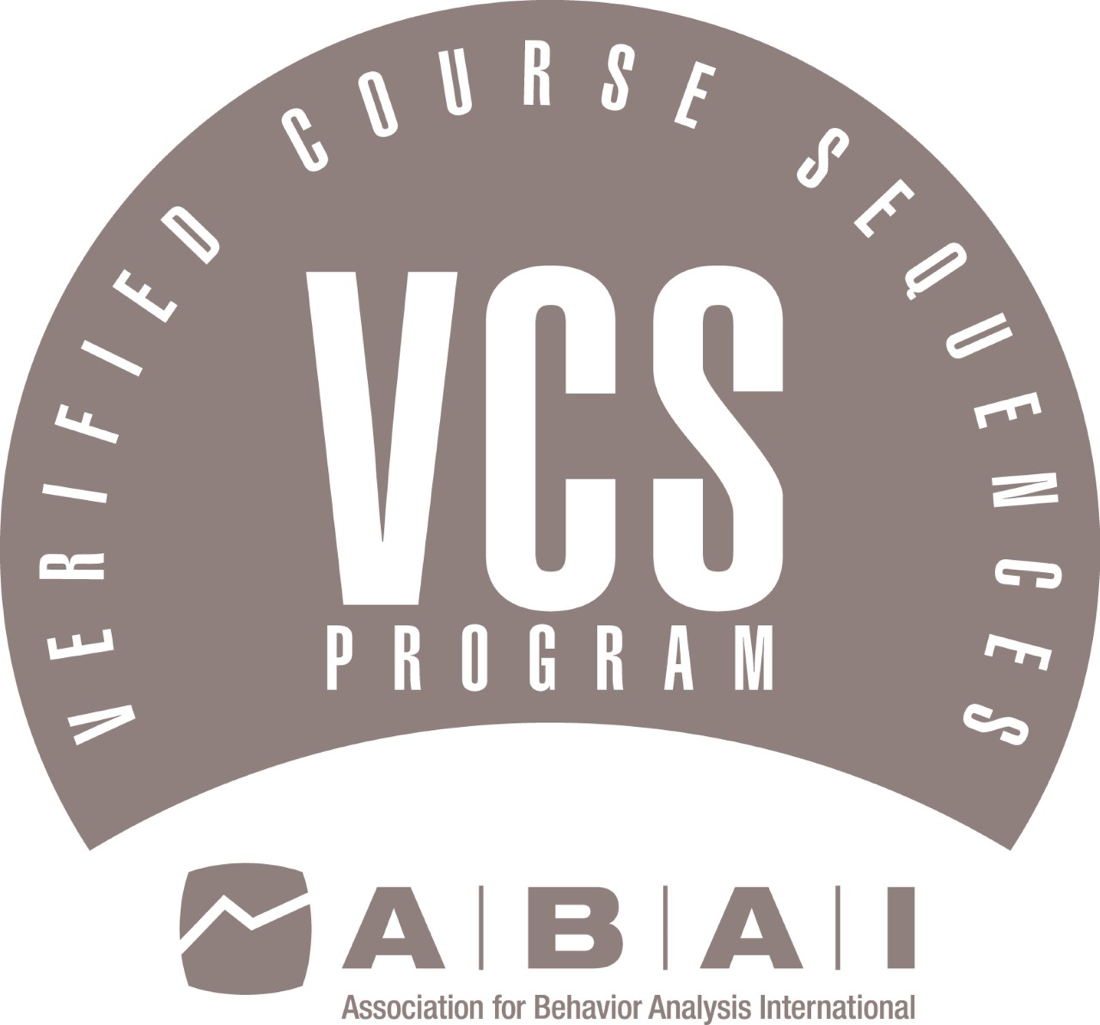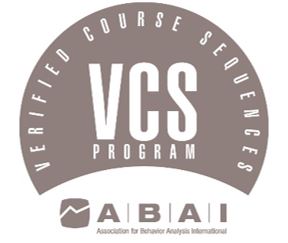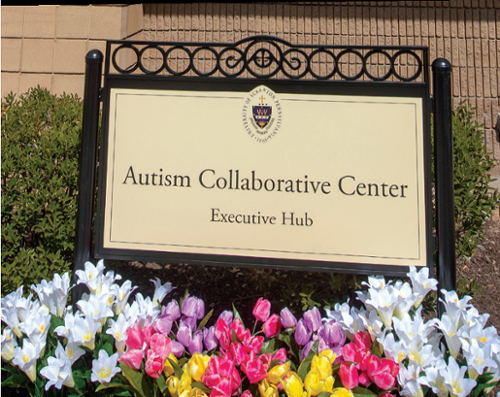Applied Behavior Analysis, Certificate of Advanced Graduate Study
The Certificate of Advanced Graduate Studies (CAGS) in Applied Behavior Analysis (for those who already possess a Master’s degree) is embedded in the Master’s Program, and both the MS in ABA and CAGS in Applied Behavior Analysis are designed for individuals who are seeking to become Board Certified Behavior Analysts® (BCBA®). Students accepted into the programs will acquire the knowledge and competencies to design and deliver effective behavioral interventions across a variety of populations and settings, with a focus on individuals with Autism as well as Intellectual and Developmental Disabilities.
The core curriculum consists of coursework that focuses on content areas such as concepts and principles, ethics, research methodology, assessment and intervention strategies, and personnel supervision and management.
The CAGS in ABA is designed to provide students with the educational experiences necessary to be a professional Behavior Analyst. In the majority of states, payor sources (e.g., private insurance, Medicaid) require certification by the BACB™ for reimbursement of services provided by therapists working with individuals living with Autism. Many other employers (e.g., Schools, clinics) also require certification to provide behavioral services.
* The Association for Behavior Analysis International has verified the CAGS in ABA core courses as meeting the coursework requirement for eligibility to take the Board Certified Behavior Analyst® examination. Students will also need to meet additional requirements before they can be deemed eligible to take the examination. You can find the most recent eligibility requirements for becoming a BCBA from the Behavior Analyst Certification Board (BACB). 
Program faculty include Ph.D. level Board Certified Behavior Analysts (BCBA-D) with extensive experience in the areas of clinical services, education, and research across a variety of client populations including autism and intellectual/developmental disabilities. Faculty members are able to provide individualized attention to support students’ academic and career goals.
Program-Specific Admission Requirements
Group interviews with program faculty members prior to acceptance are required. Program directors review applications and pay particular attention to each applicant’s ability to address program specific professional goals and professional identity in the statement of intentions.
Students falling below a minimum undergraduate GPA of 3.00 on a 4.00 scale may be required to submit other evidence of their ability to successfully complete a graduate program, such as grades in other graduate-level courses, a record of progressively higher work responsibilities, or scores from the Miller Analogies Test or Graduate Record Examination.
For general application requirements, please Visit Our Admissions Webpage.
Curriculum
This 21-credit post-graduate certificate program is uniquely designed based on the ABA competencies required by the Behavior Analysis Certification Board (BACB™). The BACB™ has expanded the scope of degrees that are eligible for certification. Information about these changes can be found in this newsletter.

Applied Behavior Analysis Curriculum
ABA 605: Philosophical Underpinnings of Applied Behavior Analysis
ABA 600: Concepts and Principles in Applied Behavior Analysis
ABA 640: Measurement and Experimental Design in Applied Behavior Analysis
ABA 610: Ethics in Applied Behavior Analysis
ABA 615: Behavior Assessment in Applied Behavior Analysis
ABA 625: Behavior-Change Procedures in Applied Behavior Analysis
ABA 635: Personnel Supervision and Management Interventions
Modes of Learning
Each course contains 45 hours of instruction which are delivered online using some or all of the following synchronous and asynchronous learning methods:
- Action Plan: The action plan lays out the requirements for each module. Since this is an online program requiring students to monitor their activity and requirements online each module, the action plan will help students keep track of their work.
- Recorded Video Lectures with Active Student Responding Items: The content is provided in the form of a PowerPoint which is accompanied by professor audio and video files. Additionally, the content presentations have active student responding items embedded throughout.
- Applied Research Review: Applied research helps make the connection between the content we study in class and the current and past research that has been done in applied behavior analysis. The applied research section of the learning modules provides a citation and corresponding abstract for a peer-reviewed article in one of the top tiered journals in applied behavior analysis.
- Scenario Prescription / Case Studies: Scenario-based learning is a highly effective approach to engaging students because it gives them control over their decisions during the learning process. Scenarios enable learners to tap their already-established skills and apply them in real-life circumstances. Students are provided with a scenario in which they can apply the content to clinical situations that they may face as a behavior analyst.
- SAFMEDS: We end each module with Say All Fast Minute Each Day Shuffled (SAFMEDS). The SAFMEDS contain targeted concepts and corresponding definitions.
- BLOG: The blogs provide quotes and images in applied behavior analysis.
- Applied Learning Activities: Each module has an applied learning activity that provides students with an opportunity to apply the concepts and strategies learned in class to professional responsibilities they will hold as a behavior analyst, such as writing functional behavioral assessments, conducting research, and measuring client progress. Assessment of student learning through examinations are also embedded in each course in the form of a mid-term and final examination.
- Additional Readings, Websites, and Video Links: Many modules contain resources in the form of readings, websites and videos related to the course content for that module. These resources are additional learning materials.
- A Virtual Meeting (Live Discussion Forum): Research shows that social presence in an online course is a vital element in online interaction. Virtual meetings are synchronous interactions between professors and students conducted with a web-based application. The virtual meetings will be held once per week for one hour.
Purpose of the Applied Behavior Analysis Program
Beyond the Classroom

A Welcoming Space
The Center for Autism Education & Training assists individuals and families in navigating services throughout the region.

Growing Need
Highly educated & skilled providers of autism services are needed to help children and family members reach their full potential.

Regional Autism Services Collaborative Announced
The Autism Collaborative Centers of Excellence (ACCE) was formed to deliver a full array of services and supports for individuals with ASD, from early intervention to adult services. The University will serve as the Executive Hub of the five family-friendly centers and recently created a welcoming space for individuals with autism and their families. The Hub will provide information and referral services.
AllOne Foundation and Charities
Debra Pellegrino, Ed.D., Dean of the Panuska College of Professional Studies, discusses the Autism Collaborative Centers of Excellence on "Newsmakers."
Program Elements
Practicum Experiences
Each course has 125 hour of practicum experiences directly linked to the content from the BACB Task List.
Commitment to Community
Addressing the growing need for highly educated and skilled clinicians who hold the BACB credential.
Meet the Program Director

Vanessa Ann Jensen, Ed.D., BCBA-D
Director, Applied Behavior Analysis Program
Ed.D., Indiana University of Pennsylvania M.S., University of Scranton B.S., University of Scranton
570-941-5810vanessa.jensen@scranton.edu





